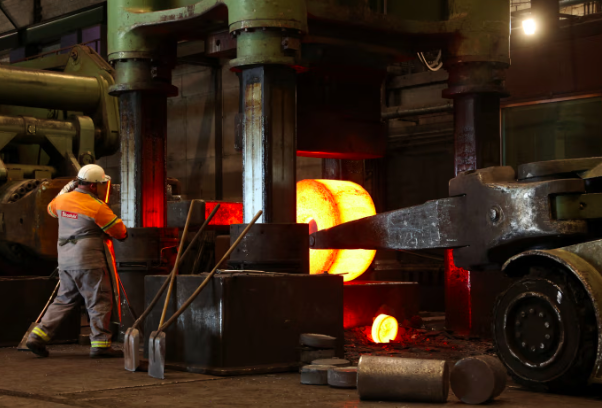




When President Trump announced his trade agreement with the European Union in July, businesses throughout the bloc believed it would put an end to months of uncertainty regarding one of the globe’s most profitable trade partnerships.
However, less than two months later, dissatisfaction with the agreement is escalating in Europe. Companies are suspending exports to the U.S., voicing concerns over new bureaucratic obstacles and cautioning about a forthcoming period of unpredictability.
The cause: the Trump administration’s choice to broaden its 50% metals tariffs to include hundreds of additional products that incorporate steel and aluminum, imposing higher tariffs on a significant number of European manufacturers than the 15% that Trump and the EU had settled on for most items.
Initially, the U.S. steel and aluminum tariffs were aimed solely at the metals themselves and primarily metal components, like screws, but they now extend to items such as motors, pumps, machine tools, and construction machinery.
“Approximately 30% of U.S. machinery imports from the EU are now subjected to 50% tariffs on the metal content of the product,” Bertram Kawlath, president of the German Mechanical Engineering Industry Association (VDMA), stated in a letter to European Commission President Ursula von der Leyen at the end of August. He further noted that the sector is confronting an “existential crisis.”
The White House and the Commerce Department did not promptly reply to requests for comments.
The reluctant acceptance of the July agreement is now at risk of falling apart. Discontent is not only growing among politicians in EU member states but is also reaching the European Parliament, which must approve essential components of the deal for it to be implemented.
"There is no security and predictability" in the U.S.-EU agreement, stated Bernd Lange, a German politician who chairs the parliament’s trade committee. Lange mentioned that he anticipates lawmakers will push for modifications to the proposed legislation that would either eliminate or lessen tariffs on various U.S. imports as per the July deal.
"Why should the EU offer zero tariffs on U.S. motorbikes, when European manufacturers are currently facing not just a 15% tariff but also additional steel and aluminum tariffs?" Lange questioned.
Bernard Krone, the head of Krone Group, which produces agricultural machinery and commercial vehicles, shares this sentiment.
Following the Commerce Department's expansion of metals tariffs to include hundreds of derivative products starting last month, the company ceased exports to the U.S., stopped production intended for that market, and sent 100 employees home. Krone is now considering rerouting shipments that are already in transit to Mexico and Canada.
"We are uncertain if our clients are willing to pay 15% or even 50% more for a machine or its spare parts," Krone remarked, noting that this disruption would have a long-lasting impact on the company’s sales in the U.S.
U.S. companies are also impacted. Deere, a major competitor of Krone, operates plants in Mannheim and Zweibrücken, Germany. According to a company spokeswoman, approximately 20% of its production in Germany is sent to the U.S.
"We are depending on structural cost discipline and strong collaboration with our distribution partners to mitigate the effects" of the steel tariffs, the spokeswoman stated. "We do not intend to move our production from Germany to the U.S."
The effective tariff that exporters face now fluctuates based on the metal content of a product. For instance, a machine valued at $1 million with 20% steel content would incur a rate of 50% on $200,000 and 15% on the remaining amount, leading to a total levy of $220,000 per machine, which equates to a 22% tariff. The U.S. has indicated it will reassess the metals tariff list every four months, contributing to the uncertainty.
The VDMA is currently urging the European Commission, which negotiated the agreement on behalf of EU members, to establish a 15% tariff cap on machinery, similar to what was done for autos, semiconductors, pharmaceuticals, and lumber.
EU trade chief Maroš Šefčovič remarked on Wednesday that the EU does not threaten American steel producers, and both economies are contending with low-cost imports from other nations.
"I am aware that they comprehend the situation, they are informed about our stances, but I cannot predict when we will reach a resolution," Šefčovič commented.
After the trade agreement was announced, European officials indicated that both parties would collaborate on a quota system that might permit a specific volume of EU steel and aluminum to enter the U.S. at a reduced tariff rate. However, they have not revealed any advancements in those discussions.
The VDMA argues that such quotas would not resolve the primary concern regarding the expanded steel tariffs: the administrative burden they place on manufacturers. If their products are included on the steel tariff list, they must investigate their metal content or face penalties.
Krone has stated that it now needs to document the steel and aluminum content of the 15,000 components that constitute its Big X forage harvester, for example. Between 10% and 15% of the company's agricultural equipment sales are directed towards North America.
Even businesses whose products are not directly affected by the steel tariffs can find themselves caught up in the situation.
Consider valves, which are standard devices used to control the flow of liquids within machinery. Although valves are not included on the expanded steel tariff list, they are utilized in injection-molding machines. Since these machines are listed, their manufacturers are now required to gather information from their suppliers regarding the steel content of their valves—where the steel was purchased, the price paid, and the location where the metal was melted and cast.
In contrast to car manufacturers, machinery producers are frequently small to medium-sized enterprises that lack significant manufacturing capabilities in the U.S.
Krone is set to establish its first assembly line close to its U.S. headquarters in Olive Branch, Mississippi, but this will only be for smaller machines. The company notes that a shortage of skilled labor and elevated production costs complicate the manufacturing of larger, more intricate equipment in that region.
